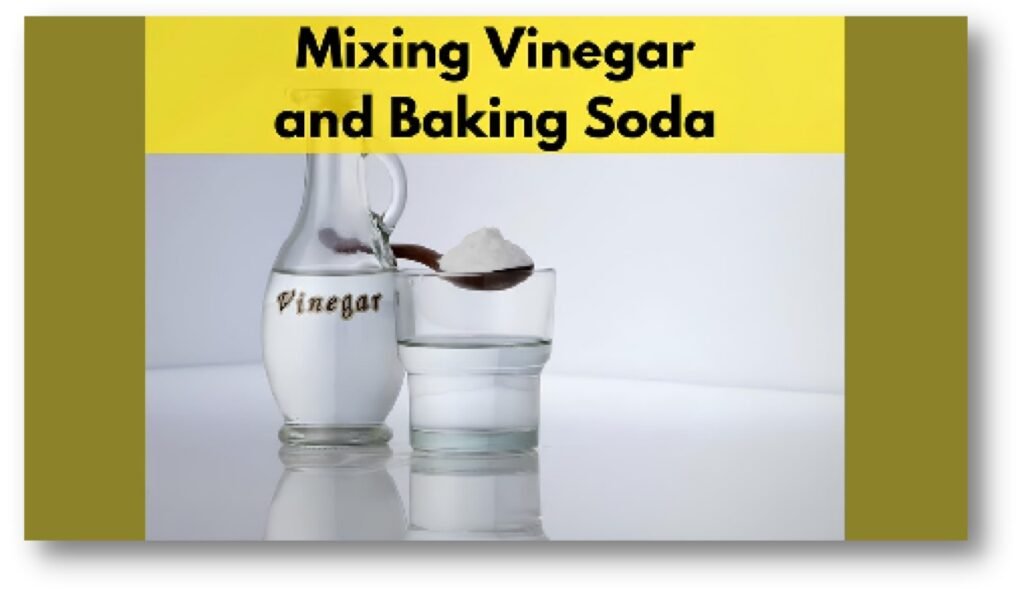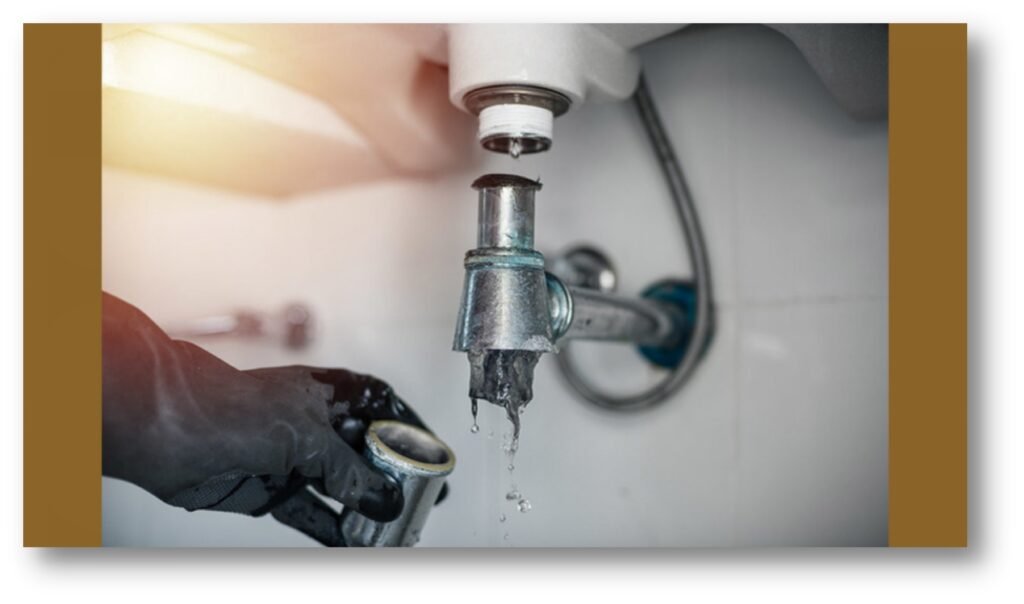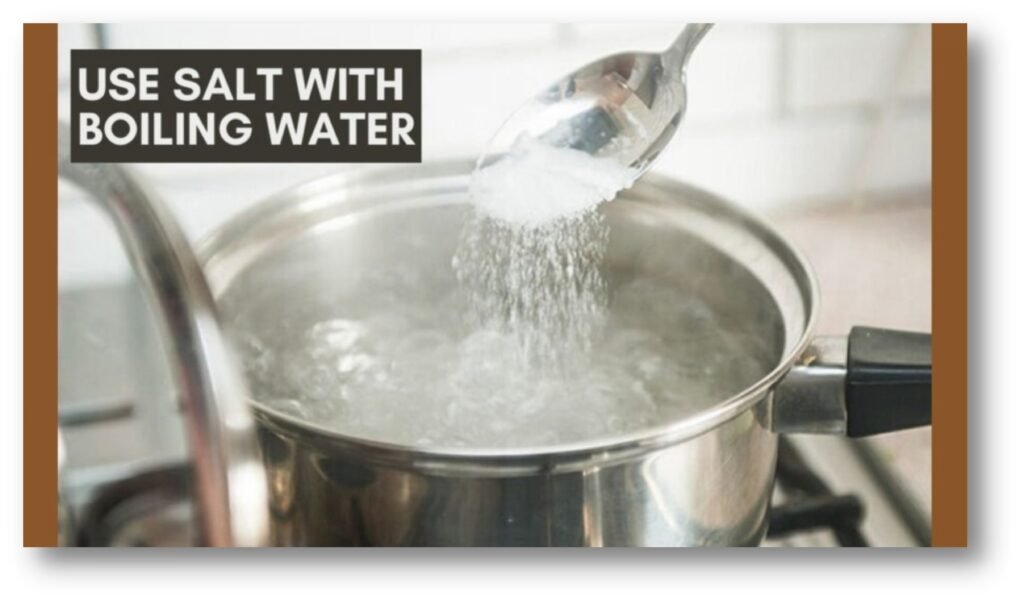It has been recognized for a long time that baking soda and vinegar can be utilized to clean drains. Many companies that make products even include it as one of their functions. There have been a few disputes about how well baking soda and vinegar work to clean drains. The divergence comes from the science behind this response. The primary concern is whether baking soda and vinegar are safe to clean drains. Experts say we shouldn’t use vinegar and baking soda to unclog our lines in drain cleaning. Cleaning with vinegar and baking soda is popular as it removes grease and bad smells. So, it comes as a surprise to learn science about these methods.
What Happened When You Mix Vinegar and Baking Soda?

Figure 1 Mixture of baking soda and vinegar
Vinegar is an acid, while baking soda is a base. Bases receive protons that acids “donate” upon combination. Acetic acid provides a hydrogen proton to bicarbonate in this instance. When it acquires a hydrogen proton, bicarbonate produces the unstable carbonic acid. After this, water, carbon dioxide, acetate, and sodium ions remain. The carbon dioxide produced during the reaction handles the bubbling.
Baking soda and vinegar, for instance, generate carbon dioxide. As a result of the carbon dioxide, vinegar evaporates and creates bubbles in the drain. The blockage is thus removed, and the drain is unclogged. However, this also means that the bubbles will ultimately dissipate, and the sewer will obstruct once the vinegar has been consumed. This is because carbon dioxide is ineffective at eliminating debris and oil accumulation, the primary causes of blocked sewers. Although vinegar and baking soda are effective cleaners, they should not be utilized to unclog a drain.
Why Vinegar and Baking Soda Solution Is Bad For DrainWhat Are The Reasons:
It Can Damage Rubber Seals
People usually think of vinegar as an effective cleaner. Always remember that it is still an acid; it may wear down the rubber seals on your pipes over time. It happened especially when mixed with baking soda. Just as you shouldn’t pour salt down the drain, you shouldn’t mix baking soda and vinegar. Doing so will keep your kitchen safe from leaks and other problems that happen over time.
It Is Not Strong Enough to Break Down Clogs

Figure 2 Drain clog
Vinegar and baking soda form a fizzing chemical reaction upon the combination, which is powerful. Moreover, this effect cannot dissolve stubborn blockages that cause a drainage basin, shower, or bath. As a result, vinegar should not be used to clean your drains.
“Vinegar is adequate for everyday cleaning on its own. It will remove the grime from your floor and clean up the reaction on your countertop, particularly if you scour. However, removing food particles and microbial growth from a kitchen drain is insufficient.
It Corrode Older Pipes

Figure 3 Damaged drain pipe
When unclogging drains, you must be careful of more than rubber seals. These two items can also hurt pipes, especially old ones that haven’t been changed.
‘Certain older homes may have pipes made of metal. They can rust faster if acidic solutions like vinegar are used on these metal pipes. It can weaken them over time and make them more likely to break or leak. Salt can be made when baking soda and vinegar combine, which may further speed up the rusting process. Because of this, using these substances daily can shorten the life of your pipes.
If you clean the drain with baking soda and vinegar, the metal used to make the drain will react with the mixture. Even if the response doesn’t happen right away, you’ll notice that the drain looks worse as time passes. This means that there will be a hole in the metal of the drain, and the drain will finally get completely clogged.
While you can have better luck with a mixture of baking soda and vinegar. It is recommended to use an alternative chemical drain cleaner.
FAQs About Baking Soda and Vinegar Solution
Is It True That Salt and Boiling Water Can Unclose Drainage Systems?

Figure 4 Solution of salt and water
If your drains slowly, you should avoid using salt and boiling water. It is ineffective for unclogging or deodorizing drains. Instead, you purchase a professional unblocker. Flush it through with hot water once the required amount of time has passed to assist in clearing your pipes of obstructions and eliminate unpleasant odors.
What Results Do You Get from Pouring an Excessive Amount of Baking Soda Down the Drain?
If you pour an excessive amount of baking soda down a drain onto a clog, it has the potential to remain on the blockage. It develops into a solid mass as the water continues to pass through it. This will make the block more difficult to remove and worse. Consider using a professional drain cleaner and deodorizer instead. These products are intended to assist in breaking down blockages caused by oil and hair. These also remove unpleasant odors from the piping.
Summary
Is it accurate to claim that you shouldn’t try to unclog blocked drains using a combination of baking soda and vinegar? It can cause the drains to get even more clogged. The correct response is “yes.” Even while the mixture of baking soda and vinegar is efficient at removing a clog. However, it will also harm your drain if you use it. Because of its abrasive properties, baking soda will wear down your drain over time. When it comes to draining, you should utilize a solution containing baking soda and vinegar.

